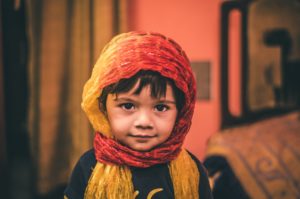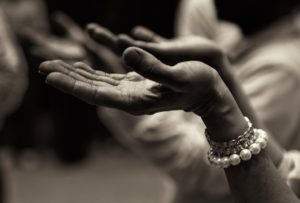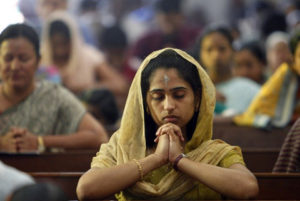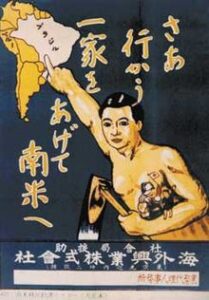Resources for Teaching
Films for Teaching on Asia: Click here.
Films for Teaching on Religion & Ritual: Click Here.
Courses Taught
Japanese Diasporas
This course explores the diverse people of Japanese descent in North America, Latin America, and Asia in the modern and contemporary periods. Students investigate how movements shape identities by analyzing a multicultural array of sources including books, articles, and movies.
Taught in Winter 2021
Global East Asia
 This course offers an overview of theories about migration, diaspora, globalization, and transnationalism in the context of Global East Asia (specifically, China, Taiwan, Tibet, Japan, Korea, and their diasporas). Students will investigate the national and international issues in East Asia, such as the memory of Japanese colonialism, as well as the diasporas from this region that have thrived in many parts of world including Africa and Latin America. Specific topics include race, ethnicity, national identity, imperialism, religion, food, and homeland, just to name a few.
This course offers an overview of theories about migration, diaspora, globalization, and transnationalism in the context of Global East Asia (specifically, China, Taiwan, Tibet, Japan, Korea, and their diasporas). Students will investigate the national and international issues in East Asia, such as the memory of Japanese colonialism, as well as the diasporas from this region that have thrived in many parts of world including Africa and Latin America. Specific topics include race, ethnicity, national identity, imperialism, religion, food, and homeland, just to name a few.
Taught in Spring 2019, Fall 2020
Myth, Ritual, and Magic
 This course explores a wide range of myths, rituals, and magic ranging from the stereotypical to the unexpected: ancient mythology, initiation rites, contemporary witchcraft, political myth-making, daily interaction rituals, among others. Through these case studies, we examine various theories about the definitions, meanings, and roles of such phenomena, sometimes by conducting mini-ethnography to observe relevant activities first-hand.
This course explores a wide range of myths, rituals, and magic ranging from the stereotypical to the unexpected: ancient mythology, initiation rites, contemporary witchcraft, political myth-making, daily interaction rituals, among others. Through these case studies, we examine various theories about the definitions, meanings, and roles of such phenomena, sometimes by conducting mini-ethnography to observe relevant activities first-hand.
Taught in Fall 2018, Fall 2019
Religion, Migration, and Diaspora
 In our contemporary globally interconnected world, religion, migration, and diaspora have become prominent issues in shaping cultural and political relations. This course examines the intersections of religion, migration, and diaspora, conceptually and empirically, drawing on historical and contemporary examples. How do we conceptualize diaspora and religion? How do people sustain and imagine homeland in relation to religion? What is the relationship between diaspora, religion, and nationhood? What is the significance of religious networks in maintaining diasporic identities? These are some of the questions that the course will address.
In our contemporary globally interconnected world, religion, migration, and diaspora have become prominent issues in shaping cultural and political relations. This course examines the intersections of religion, migration, and diaspora, conceptually and empirically, drawing on historical and contemporary examples. How do we conceptualize diaspora and religion? How do people sustain and imagine homeland in relation to religion? What is the relationship between diaspora, religion, and nationhood? What is the significance of religious networks in maintaining diasporic identities? These are some of the questions that the course will address.
Taught in Fall 2019
Buddhism
 This course explores religious themes and movements related to Buddhism in various Asian countries, Europe, and North America, with a focus on modern and contemporary periods. The topics include historical narratives, interpretations of texts, transformations of rituals, diaspora and identity, nationalism and politics, and contemporary pop culture.
This course explores religious themes and movements related to Buddhism in various Asian countries, Europe, and North America, with a focus on modern and contemporary periods. The topics include historical narratives, interpretations of texts, transformations of rituals, diaspora and identity, nationalism and politics, and contemporary pop culture.
Taught in Spring 2018, Spring 2019
Culture in Mind: Psychological Anthropology
 How does culture shape our mind? Culture in Mind explores this big question with diverse case studies from all over the world, ranging from a distinct style of preschool socialization in Japan to the experience of spirit possession in Sudan. In addition to the breadth of cultural contexts covered, the course will also investigate a variety of topics pertinent to the making of mind in culture, such as the self, cognition, socialization, race, gender, embodiment, and mental illness, just to name a few. Students will learn the diverse ways in which people perceive, experience, and construct the reality cross-culturally and ask critical questions about their own cultural worlds as well.
How does culture shape our mind? Culture in Mind explores this big question with diverse case studies from all over the world, ranging from a distinct style of preschool socialization in Japan to the experience of spirit possession in Sudan. In addition to the breadth of cultural contexts covered, the course will also investigate a variety of topics pertinent to the making of mind in culture, such as the self, cognition, socialization, race, gender, embodiment, and mental illness, just to name a few. Students will learn the diverse ways in which people perceive, experience, and construct the reality cross-culturally and ask critical questions about their own cultural worlds as well.
Taught in Fall 2018
Introduction to Religious Studies
 In this introductory course, students will learn about different approaches and debates that shape the academic study of religion. The course surveys a broad range of theoretical and conceptual frameworks that have influenced the field, such as the definition of religion, theories of religion, the comparison of religion, and religion’s psychological, social, and political effects.
In this introductory course, students will learn about different approaches and debates that shape the academic study of religion. The course surveys a broad range of theoretical and conceptual frameworks that have influenced the field, such as the definition of religion, theories of religion, the comparison of religion, and religion’s psychological, social, and political effects.
Through discussions, exams, and short essays, students learn the following three skills: 1. To view things from multiple viewpoints. 2. To know the social and political contexts that shape the academic study of religion. 3. To make the strange familiar and the familiar strange.
Taught in Spring 2017, Fall 2017, Spring 2018
Theories of Ritual
 This course explores a wide range of rituals ranging from the stereotypical to the unexpected: initiation rites, religious ceremonies, contemporary witchcraft, daily interaction rituals, and soccer hooliganism, among others. Through these case studies, students examine various theories about the definitions, meanings, and roles of ritual, sometimes by conducting mini-fieldwork to observe rituals in action. Course materials will comprise articles, books and films about rituals from all around the world, ranging from a Papua New Guinean village in the 1950s to the contemporary U.S. society.
This course explores a wide range of rituals ranging from the stereotypical to the unexpected: initiation rites, religious ceremonies, contemporary witchcraft, daily interaction rituals, and soccer hooliganism, among others. Through these case studies, students examine various theories about the definitions, meanings, and roles of ritual, sometimes by conducting mini-fieldwork to observe rituals in action. Course materials will comprise articles, books and films about rituals from all around the world, ranging from a Papua New Guinean village in the 1950s to the contemporary U.S. society.
Taught in Spring 2017
Global Christianities
 While the image of Christianity as a “Western religion” remains influential, the majority of self-identifying Christians today live in the Global South, outside of Europe or North America. This class explores the wide breadth of definitions, narratives, and systems associated with Christian identities around the globe, from Africa to Asia to Latin America. Students will investigate a set of major theoretical themes in the study of Global Christianity, such as personhood, modernity, globalization, and colonialism.
While the image of Christianity as a “Western religion” remains influential, the majority of self-identifying Christians today live in the Global South, outside of Europe or North America. This class explores the wide breadth of definitions, narratives, and systems associated with Christian identities around the globe, from Africa to Asia to Latin America. Students will investigate a set of major theoretical themes in the study of Global Christianity, such as personhood, modernity, globalization, and colonialism.
Taught in Fall 2017

